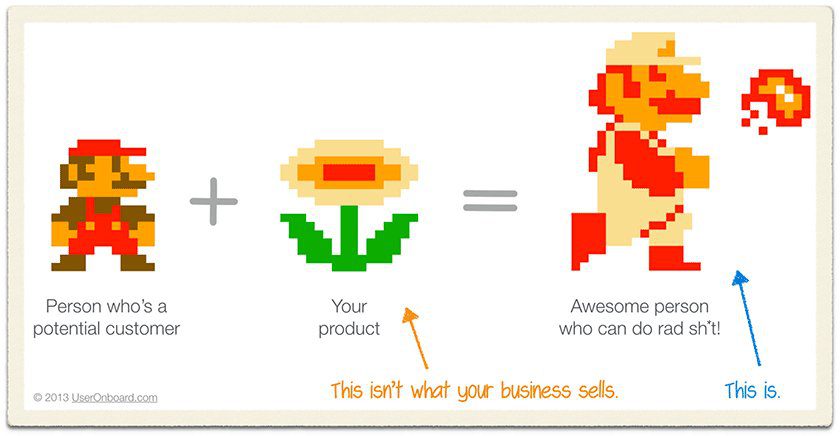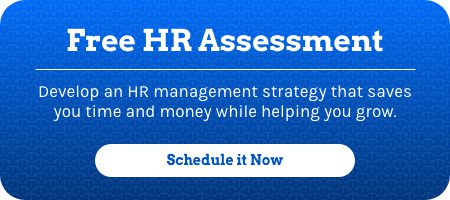When selling a sophisticated, ERP cloud-based offering to your leads, you’re bound to come across some stakeholders who aren’t as well versed in the technical language of your product as you are. So, what this means is that you need to adapt your sales pitch appropriately to explain how your product will meet the requirements for them in Layman’s terms. Check out these tips for selling ERP software to those stakeholders who are technology challenged.
Selling ERP Software to Non-Techies
In order to communicate your offerings and value-add effectively, we recommend doing the following:
Determine how fluent your lead is in technical software speak from the beginning.
When you connect with a lead, you should be able to gauge how fluent they are in technical ERP-related conversations through basic active listening skills and being aware of how the conversation is going when you are providing some of the more technical details of your product. If they seem confused or overwhelmed when you start getting into those gritty technical details, you need to readjust your pitch and tone to match their level of understanding of the product you are offering.
Another area to avoid is using industry acronyms without explaining what they are beforehand. AFR, BOM, EECN, PDM— you may know what these mean as someone selling ERP technology in the industry, but don’t count on your leads knowing exactly what they mean.
The worst thing you can do for yourself is to make your leads feel foolish.

Gain insight into their challenges and goals.
This is a given fact regardless of whether your client is fluent in speaking in savvy technological tongues such as yourself or not.
It doesn’t matter what level of technical competencies they are at. Aside from relying more on Layman’s terms, you need to find out what their pain points and goals are for their business. Find out their short and long-term goals, what their budget is, any unique processes that may affect data exchanges during a potential implementation with your offering and more.
After learning what makes them tick, their goals, fears, etc., you will then have the knowledge to present to them the solution(s) that will improve their operations. Just remember to create your presentation experience based on the technological fluency levels your leads possess in their vocabulary.
Don’t talk about the features of your offering. Talk about the benefits.
One of the more challenging issues for ERP consultants is clearly explaining how the features of their solution(s) will translate to the overall benefits for administrators and end-users of the product(s).
So, what is the difference between explaining the features and benefits of your ERP offering?

According to User Onboard, the difference between features and benefits are:
People don’t buy products; they buy better versions of themselves.”
When you’re trying to win customers, are you listing the attributes of the flower or describing how awesome it is to throw fireballs?
To put this idea into context, an example could be speaking on the benefits of automated tracking project costs to your lead who isn’t well-versed in the technical language of this specific ERP offering. Instead of just listing off how your system would use integrations to connect systems to create a single, source of truth to share project costs, you would spend time going over specifics on this lead’s job and how your offering will enhance their abilities to do it more effectively.
Inform through storytelling.
This isn’t the time to just go through your list of features and integrations line-by-line.
No way!
Tell them a story they can relate to. Maybe you have another client who had been having the exact same issues as this current lead does? This would be the perfect time to put together the nitty-gritty details of the journey said client took with you to solve all their pain points. Maybe in the past, one of your client’s systems “went up in flames” and thought they lost everything, only to quickly retrieve the redundant backup data your platform performs every hour to resolve their crisis 10 minutes later.

Sharing real-life scenarios will make a big impact on leads who are having trouble visualizing the technical side of what your ERP offering can do.
What if you don’t have any real-life stories in your back pocket currently?
It’s not a big deal to create hypothetical scenarios based on your lead’s pain points and whatever other information you gather from them in the early stages of learning their pain points If they’re planning on switching ERP platforms entirely, make sure to find out what glaring issues they had with it and provide stories about how your product would be able to handle those issues with ease.
Give them options.
Everybody loves having the ability to pick and choose what they want. That’s no different for businesses you are selling ERP too. Based off the information learned from your lead and what their budget looks like, you should be offering them an array of packages to give them the ability to determine what’s right for them.
Make sure to discuss any tradeoffs, benefits and risks that may impact their business in any number of ways. In the end, you’re a consultant doing what’s best for your client. If they can only afford a la carte modules from your ERP offering, then that’s all you can really move forward with at that time.
As an ERP consultant, it’s crucial to be flexible and work with your leads to meet their needs and what they can afford at any given time.

Make it clear what your product can and cannot do.
This is highly important. You must hash out with your non-technical leads what you can realistically deliver for them based on their requirements and budget. Go over disaster scenarios, what their expectations are if their system is down for a certain amount of time, integration requirements between other 3rd party services they are using and more.
Here’s an example of a question you could ask your lead:
“If your platform runs into issues that take it down for a period, at what point does it become a huge problem for you as you wait for it to be solved?”
Closing thoughts
Use these strategies when selling ERP to your leads that just aren’t versed in the technical jargon of your expertise. The biggest takeaway from this article and the other content consumables you are digesting on this very subject is PRACTICE what you learn!
It’s going to take maximum effort on your part to angle your sales pitch to meet the needs and understanding of these leads. Make yourself uncomfortable to make your non-technical leads comfortable during their buying journey.
Arcoro’s cloud-based, automated modular solutions are the perfect option for ERP consultants who need a strong payroll and HCM partner to combine within their current ERP offering. With seamless integrations to Acumatica, Netsuite, Sage 100, 300 and more, consultants partnering with Arcoro have seen their opportunity-share rise in the market they are chasing.
ERP partners should be looking for sophisticated, cloud-based payroll and HRIS platform functionality to meet the needs and components a lot of organizations are looking for today.
Arcoro’s solutions include:
- Payroll Processing
- Employee self-service (Employee Portal)
- Benefits Management
- ACA Compliance
- Applicant Tracking
- ExakTime Time and Attendance
- Reporting
- Performance Management
- Recruitment
- Learning Management
- Succession Planning
- Onboarding
- Surveys
- Job Posting and more
Arcoro excels with organizations that have 75-2500 employees.

See it for yourself by scheduling a demo today!





